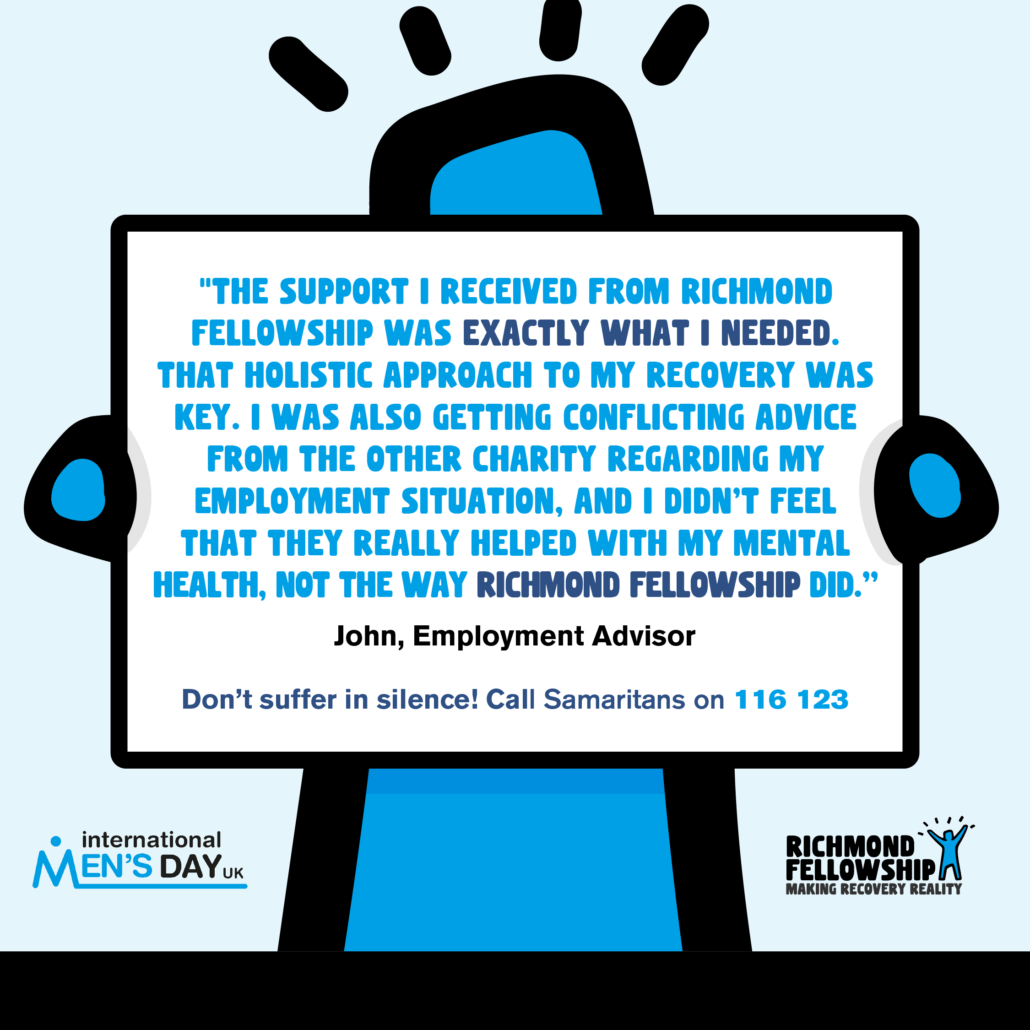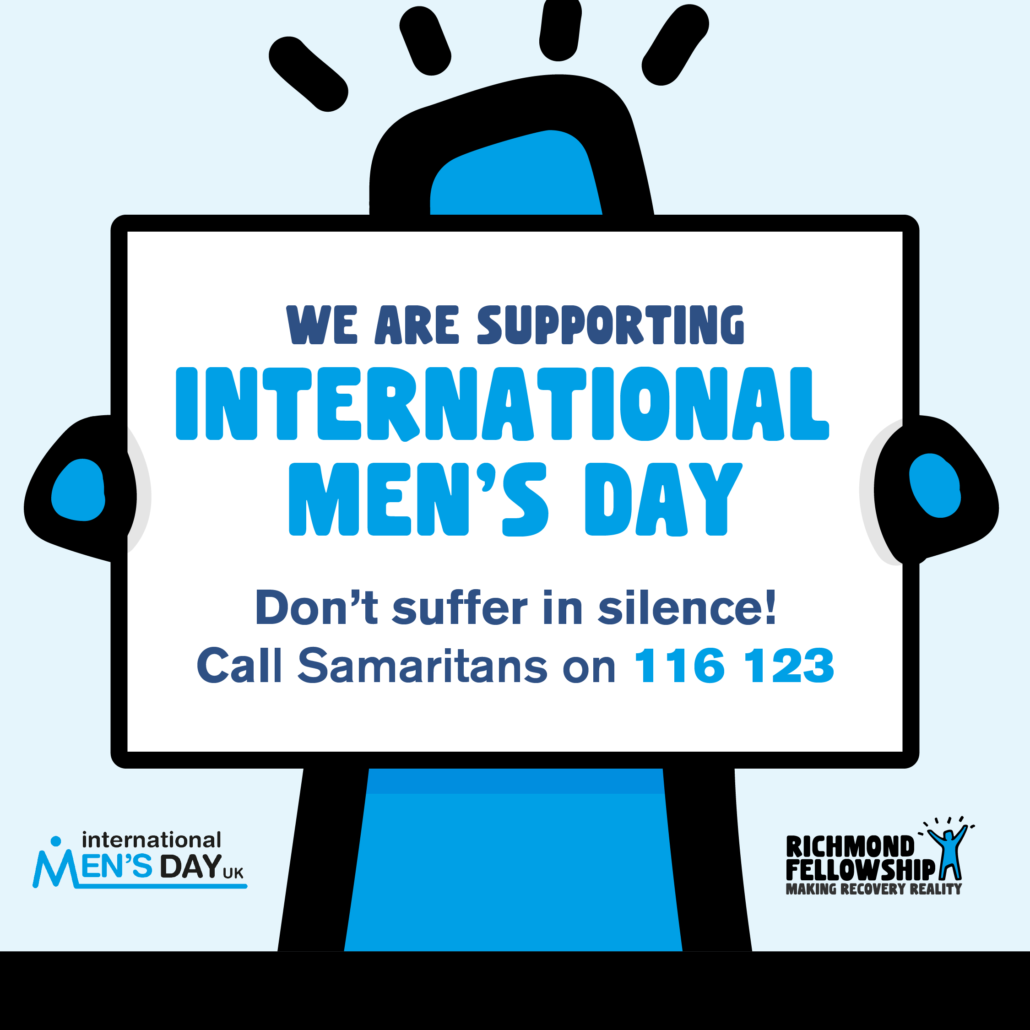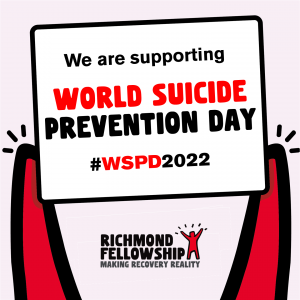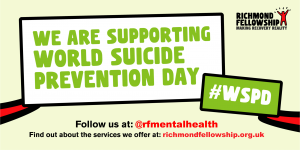International Men’s Day 2022 – Karl’s Blog
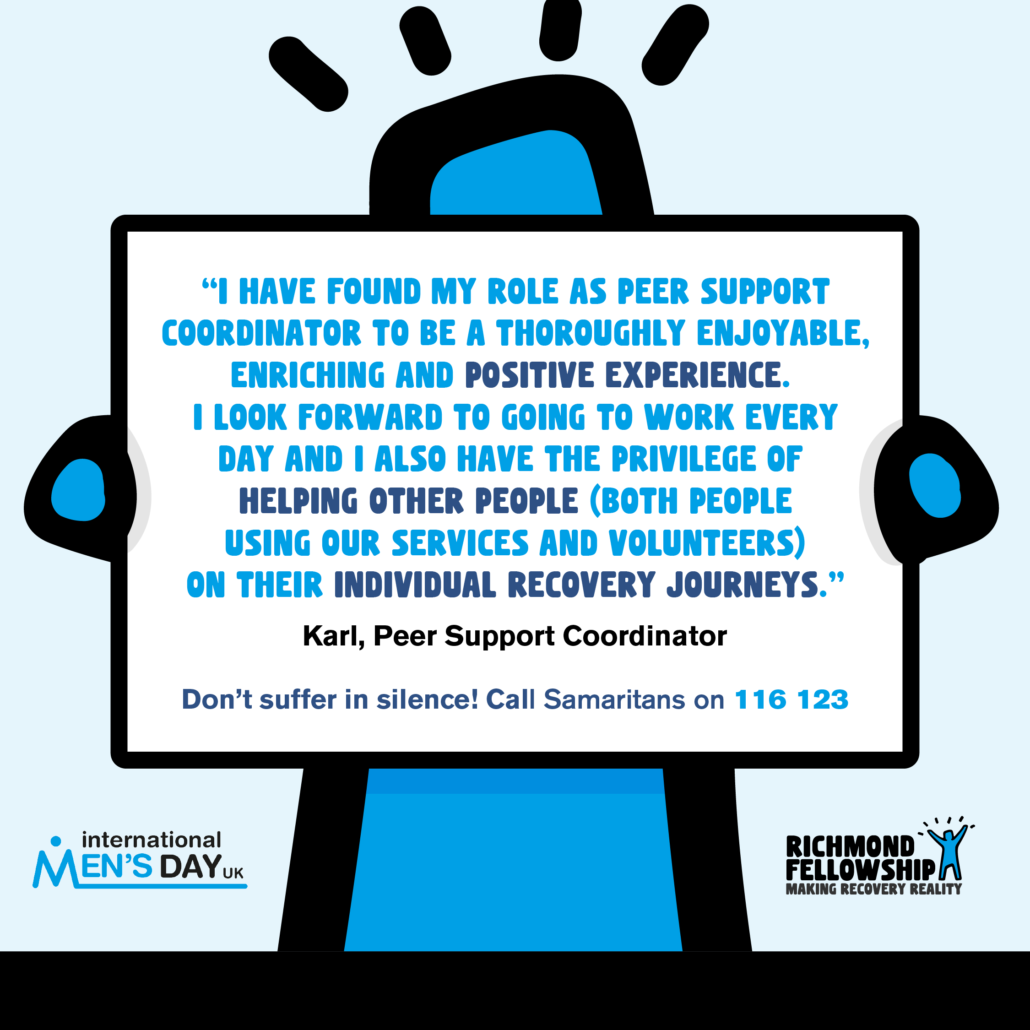 As part of International Men’s Day 2022, we’re shining the spotlight on some of the issues affecting men and boys and showing that a career in the charity and care sector is something men can aspire to.
As part of International Men’s Day 2022, we’re shining the spotlight on some of the issues affecting men and boys and showing that a career in the charity and care sector is something men can aspire to.
Karl began receiving support from Richmond Fellowship in 2016 after being out of work for many years.
Since 2019 he’s worked as a Peer Support Coordinator at our Kirklees Employment service in Yorkshire. Karl explains how taking up learning and development opportunities has helped him get where he is today.
“With the supportive guidance of my Employment Advisor, I began the first tentative steps in my recovery journey. I attended several courses organized by Richmond Fellowship, specifically designed to help me rebuild my confidence, remain well and develop the practical skills to help me attain either voluntary or paid employment.
Witnessing the inspirational ways in which volunteers co-facilitated these groups alongside full-time members of staff, led me to enquire about the voluntary opportunities available at Richmond Fellowship. After completing the application process, I began my volunteer role, which involved assisting people we support with a basic IT course. I went on to volunteer on other courses and this culminated in my enrolment on the Level 2 accredited volunteer training course, where I developed a range of new skills and improved existing ones. I found this to be an extremely rewarding and eye-opening experience.
Not long after this, my Peer Support Coordinator told me that she was going on maternity leave and, with her encouragement, I was able to draw on my newly awakened sense of self-worth and my positive experiences as a volunteer to apply for her post. Much to my surprise and excitement, I was offered the job.
I have found my role as Peer Support Coordinator to be a thoroughly enjoyable, enriching, and positive experience. I look forward to going to work every day and I also have the privilege of helping other people (both people using our services and volunteers) on their own individual recovery journeys.
Without meaning to sound overly dramatic, Richmond Fellowship and the services it provides has transformed my life completely and enabled me to leave my debilitating mental health issues in the past”.
Throughout his time as Peer Support Coordinator, Karl has completed several training and development courses including Train the Trainer, Recruitment and Selection, Suicide Intervention and the Deliver and Assessing course, which will enable him to run the accredited volunteer training.
As well as taking part in many of the courses himself, Karl also continues to work hard to look at new ways of involving the people we support, through improving existing training courses and creating new ones to meet people’s individual needs and goals.
Inspired to work for us? Check out our latest vacancies on our online jobs portal today.
If you’re a man struggling with your mental health or experiencing domestic abuse, please see our need urgent help page to signpost you to the correct services.
Richmond Fellowship is a national mental health charity and we welcome donations and fundraising to help support our frontline services. Click here to fundraise or donate to us today!





